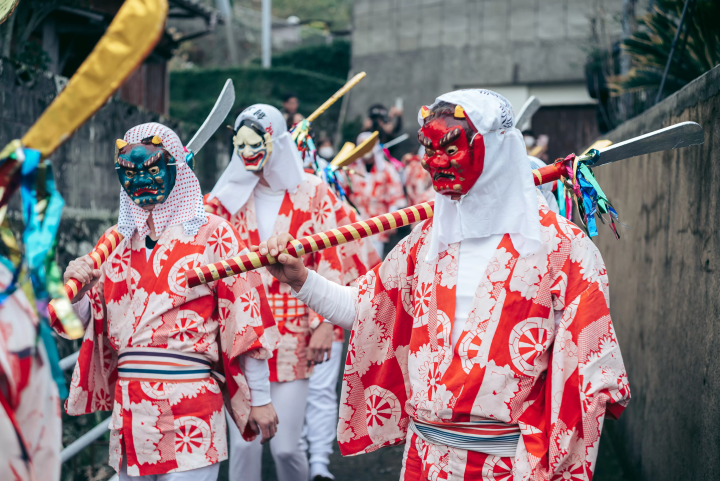Nandeyanen? 10 Osaka Dialect Phrases That Are Meccha Important!

Osaka dialect is quite different from the rest of Japan. We introduce 10 useful phrases in Osakaben. With these phrases, you'll be able to communicate like a local from Osaka and make new friends on your next visit!
Osakaben is the name for Osaka dialect. People from Osaka take a lot of pride in their dialect and it is quite different from the rest of Japan.
Most Japanese people begin to adopt standard Japanese after they come to Tokyo. However, Osakans would never do that. They will speak their Osakan dialect anywhere they go. Once you are accustomed to Japanese you will probably easily hear when someone is from Osaka.
Osakaben stems from the Kansai area and is similar to the Kyoto and Kobe dialects. It’s a powerful dialect consisting of quick reactions and fast-talking. This is one of the reasons it has become rather popular all over Japan as many famous comedians are from Osaka or at least use Osakaben to sound funnier.
How about trying out some Osakaben for yourself? We introduce you to some useful words and phrases.
10 Osaka Dialect Phrases to Learn
1. Nan-de-ya-nen
2. Meccha
3. Honma
4. Wakarahen
5. Ee de
6. Maido
7. Nambo
8. Makete
9. Ookini
10. Hona
1. Nan-de-ya-nen

Nandeyanen is possibly one of the most used phrases in Osaka. It translates to What are you talking about? or You've got to be kidding!. Usually, you would say that to someone who is being silly.
This phrase is incredibly popular in traditional Japanese-style stand-up comedy, called manzai. However, it is very casually used by people in Osaka on a daily basis.
People in Osaka love to joke and exaggerate all the time. For example, after eating a bowl of ramen that costs 700 yen, the owner might say "That’ll be 7 million yen, thanks!". In this case, you can say, "Nandeyanen!"
You can also use nandeyanen to act surprised about something being said. For example, when someone says you are pretty you can reply "Nandeyanen".
2. Meccha
Meccha means "very", "really" or "totally". It’s a word to emphasize what is said afterward.
As mentioned before, Osaka people like to exaggerate, so basically, most of things are meccha. Meccha ii (very good), meccha kawaii (very cute), meccha oishii (very delicious), you probably get the point.
If you want to praise someone or something, don't be afraid to use meccha. It will probably make the people you talk to very happy.
3. Honma
Honma means "really" in Osakaben. It is a very universal word just like meccha.
You can use it as "Honma?" which means "Really?" or "Are you serious?" but you can also use it to make the meaning of other words stronger. For example, "Honma gomen" (really sorry) or "Honma okini" (thank you very much).
4. Wakarahen
Wakarahen means the same as "wakaranai" in standart Japanese. It translates to "I don't understand" or "I don't get it".
You can casually use wakarahen when you don't understand the meaning of something. It can be used for both, if you don't understand the Japanese meaning or if you just don't understand what the other person tries to tell you.
5. Ee de
Ee de has the same meaning as "ii yo". It means "Don't worry", "No problem" or "Ok". You can use it as a reply whenever someone asks you for a favor or apologizes to you for something.
6. Maido
Maido is probably not something you can use yourself but rather something that will be used a lot by salespeople if you enter a shop or make a purchase. It means "Thank you for visiting our shop!" or "Hello!".
People in Osaka may also use it when answering the phone. They might say "maido maido" instead of "moshi moshi".
7. Nambo
Nambo mean "how much is it?. If you want to know the price of something, you wouldn't say "kore ikura desu ka?" in Osaka. It is better to ask "Sunmahen, kore nambo?".
Sunmahen is used in Osaka instead of "sumimasen". They both have the same multiple meanings of “excuse me,” “please,” “thank you,” or “sorry.”
8. Makete
Makete means "Discount, please." Osaka is a city with a powerful merchant spirit. An Osakan’s policy is to buy goods of good quality as cheaply as possible. The act of bargaining has been a part of Osaka's culture for a long time.
You can’t bargain in department stores or supermarkets, but you can in the electronic stores, even in some major ones. You can also try your bargaining skills at flea markets and shopping arcades where the shops are relatively small.
How about trying to enjoy shopping and communicating with the shop clerk by using "Makete!"?
9. Ookini
"Ookini" is spoken with a long "o" and means "thank you". This word is not used as often nowadays, especially if you’re from the younger generation. However, it is still used by shop staff to thank their customers in shopping arcades with many traditional shops.
It doesn't sound odd if someone of a younger generation uses it. Actually, older people might be pleasantly surprised by your politeness. Why not try saying "Ookini!" when you want to say thank you to someone in Osaka?
10. Hona
Hona can be used as "Well then" or "Bye". People in Osaka use it as "see you" but it is usually used for longer separations such as saying goodbye to someone at the airport.
It can be used more casually when there is something you want but it is not available or sold out. In this case, you can also say "Hona". In this case, it means "well then" or "no other choice"
FAQ
Is the Kansai dialect very different?
The Kansai dialect, also known as Kansai-ben, is distinct from the standard Japanese dialect spoken in the Kanto region, where Tokyo is located. The Kansai dialect is known for its unique intonation, vocabulary, and grammar, which can sometimes sound quite different to speakers of standard Japanese. Some characteristics of Kansai-ben include the frequent use of different verb endings, pronunciation differences, and specific slang terms and expressions. While standard Japanese is generally understood throughout Japan, including the Kansai region, the Kansai dialect can add a local flavor and sense of identity for those who speak it, distinguishing them as being from the Kansai area.
What cities speak Kansai dialect?
The Kansai dialect, known as Kansai-ben, flourishes in several key cities within the Kansai region of Japan, each contributing its unique flavor to this distinctive linguistic variant. In Osaka, the largest city in the region, the vibrant culture and delicious street food are accompanied by the cheerful cadence of Kansai-ben. Kyoto, renowned for its ancient heritage and traditional customs, echoes with the Kansai dialect spoken by its locals, adding a local charm to its historic streets. The port city of Kobe, with its cosmopolitan ambiance, and Nara, steeped in history and spirituality, also resonate with the characteristic intonations and expressions of the Kansai dialect, enriching the linguistic tapestry of these urban centers. These cities, among others in the Kansai region, showcase the diverse and colorful linguistic landscape of Japan, with Kansai-ben at the forefront of regional identity and communication.
What dialect is spoken in Osaka?
In Osaka, as well as throughout much of the Kansai region, the primary dialect spoken is the Kansai dialect, known as Kansai-ben in Japanese. This regional dialect is distinct from the standard Japanese dialect spoken in the Kanto region, which includes Tokyo. The Kansai dialect, characterized by unique intonation, vocabulary, and grammar, gives a distinct flavor to the language spoken in Osaka and surrounding areas. Some features of the Kansai dialect include different verb endings, pronunciation variations, and specific slang terms and expressions that set it apart from standard Japanese. The Kansai dialect adds a local color and sense of identity to the language spoken in Osaka, reflecting the region's rich cultural heritage and traditions.
How do you say thank you in Osaka?
In Osaka, as part of the Kansai region of Japan, people often use the informal variation of "thank you" when expressing gratitude. The standard Japanese phrase for "thank you" is "arigatou gozaimasu". In the Kansai dialect, particularly in Osaka, this is often replaced by "ookini" or "ookini-san", which is a more casual and colloquial way of saying "thank you" in the local dialect. It adds a touch of regional charm and friendliness to expressions of gratitude in Osaka and the broader Kansai area.
What is the stereotype of Kansai dialect?
The Kansai dialect, Kansai-ben, carries several stereotypes that shape perceptions of its speakers in Japan. Often associated with warmth and friendliness, individuals who speak Kansai-ben are seen as approachable and hospitable, reflecting the dialect's intonation and expressions. Known for its humor and playfulness, Kansai-ben is a common choice for comedians and entertainers, adding a light-hearted touch to communication. Speakers of the dialect are thought to be direct and honest, conveying messages in a straightforward manner. Above all, individuals using Kansai-ben typically exhibit a strong sense of regional pride, embracing their cultural heritage and linguistic differences as essential elements of their identity. These stereotypes contribute to a rich tapestry of regional identities and perceptions in Japan, highlighting the diversity and vibrancy of the country's linguistic landscape.
How do you say yes in Osaka?
In Osaka, as part of the Kansai region of Japan, speakers often use the word "un" as a casual way to say "yes." This informal response is commonly heard in everyday conversations and interactions, reflecting the casual and friendly nature of communication in the Kansai dialect. In more formal or polite situations, the standard Japanese word for "yes," which is "hai", can also be used in Osaka.
How do you say I love you in Osaka dialect?
In the Kansai dialect, particularly in Osaka, the expression "I love you" is often conveyed with a unique twist compared to standard Japanese. Instead of the typical phrase "aishiteru" used in standard Japanese, in the Kansai dialect, including Osaka, you might hear: "Daisuki yanen." This phrase carries a similar sentiment to "I love you" in English, but with a uniquely Kansai flavor that adds a touch of local charm and authenticity to the expression of affection.
How do you say "delicious" in Osaka?
In Osaka, part of the Kansai region of Japan, the word for "delicious" is often expressed as "umai" or "meccha umai" in the local dialect. These terms are used colloquially to convey that something is tasty or delicious. The Kansai dialect adds a regional flair to expressions of enjoyment and satisfaction with food, enhancing the dining experience with its unique linguistic touch.
Try some Osaka Dialect on Your Next Trip
Osaka people are extremely friendly and always fun to talk with. They are always open for a chat and happy to talk to strangers. How about trying some of the phrases you learned today on your next trip to Osaka? People will be positively surprised and you might make some new friends!
Maybe you say "nandeyanen!" but I tell you "honma!". Try it out!
城や昔の街並みが好きな医療職。大阪生まれ大阪育ちで大阪大好きですが、地方にも魅力を感じる今日この頃。週末はサッカー観戦か近畿、四国をショートトリップしています。







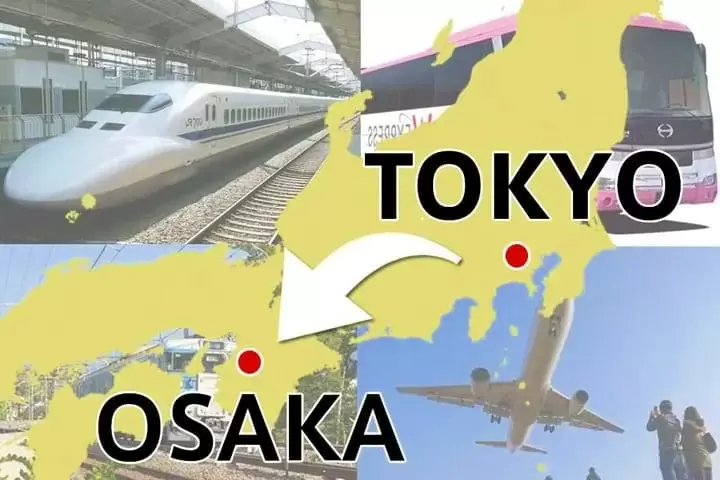



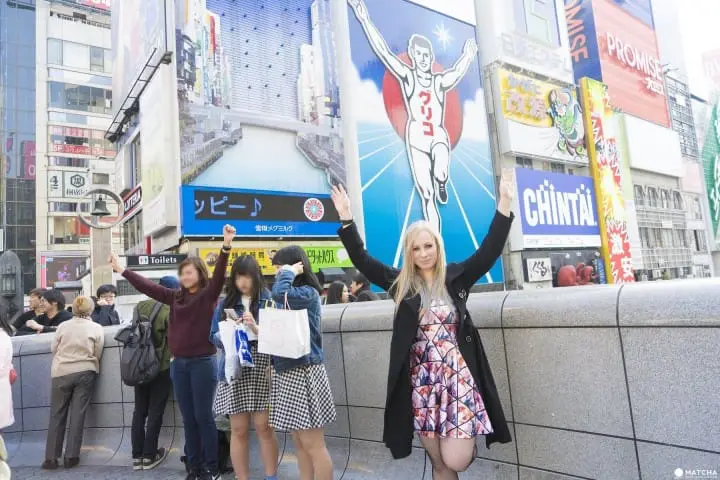




























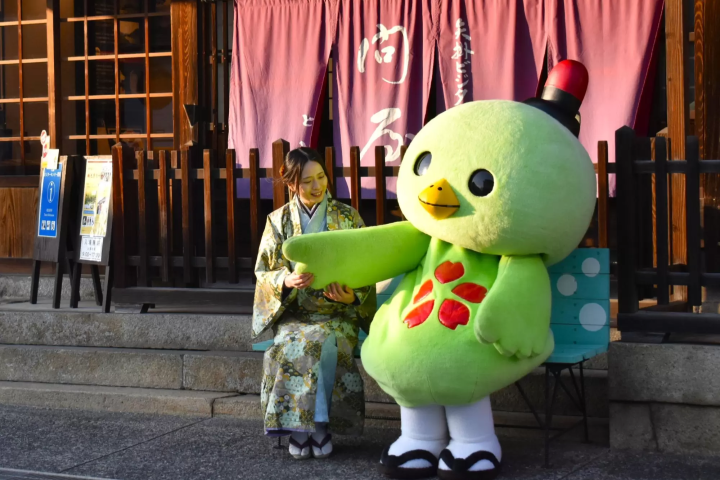
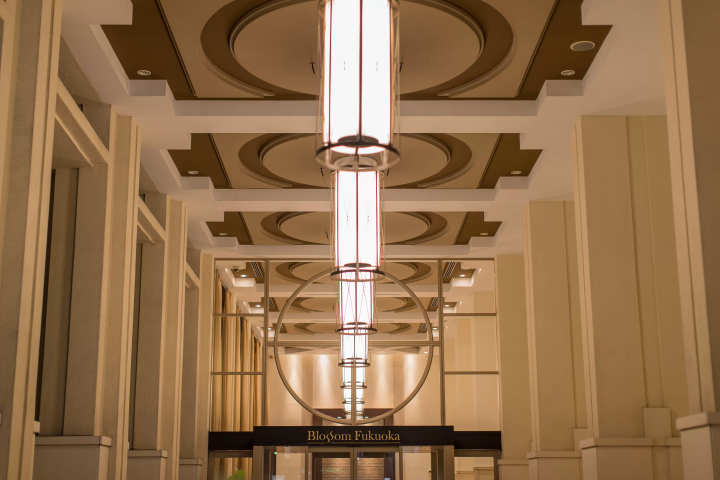

![[2026 Latest] Dogo Onsen and Matsuyama Castle 1-night, 2-day trip by express bus from OCAT](https://resources.matcha-jp.com/resize/720x2000/2026/02/02-257354.webp)
